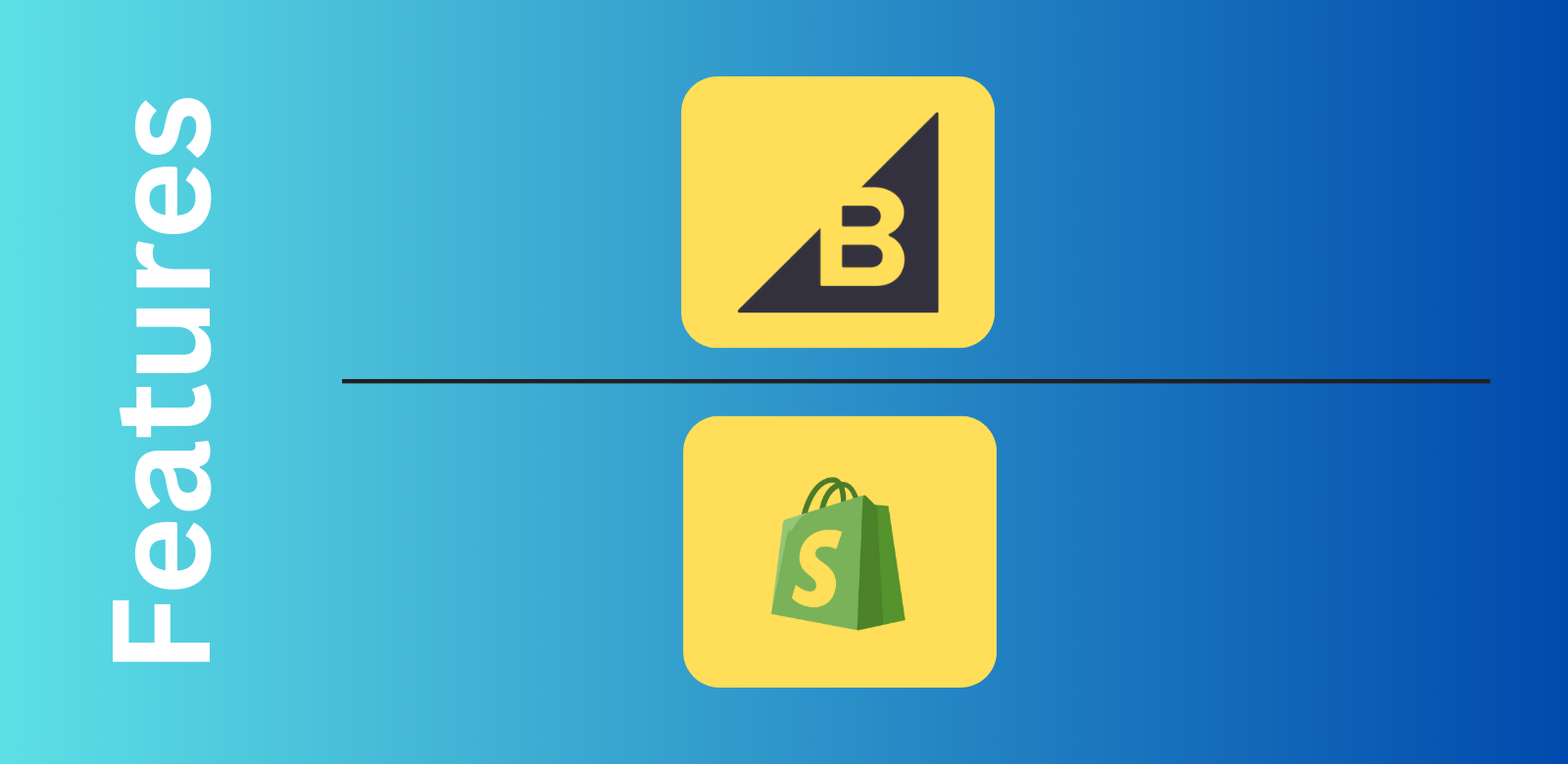We're developing the brand!!
- helpdesk@xicommerce.co
- +91 99534 92795

 By Rajdeep
By Rajdeep
Both Shopify and BigCommerce are robust e-commerce platforms that offer a range of features designed to help businesses create and manage online stores effectively. Here’s a comparison of some key features offered by each platform.
Both Shopify and BigCommerce are robust e-commerce platforms that offer a range of features designed to help businesses create and manage online stores effectively. Here’s a comparison of some key features offered by each platform:Shopify is known for its user-friendly interface, making it easy for beginners to set up and manage their online stores without technical expertise.
Shopify offers a wide selection of professionally designed themes that are easy to customize. Users can modify themes using a drag-and-drop editor or access the underlying code for more advanced changes.
Shopify has a vast app store with thousands of apps and integrations to extend functionality. This includes apps for marketing, sales channels, customer support, and more.
Shopify supports over 100 payment gateways globally, offering flexibility for accepting payments. It also has its own payment gateway, Shopify Payments, which integrates seamlessly with the platform.
Shopify provides built-in SEO features such as customizable meta tags, title tags, and automatic XML sitemap generation to help optimize store visibility in search engines.
All Shopify themes are responsive, ensuring a consistent user experience across devices. The platform also offers a mobile app for managing store operations on the go.
Shopify offers 24/7 customer support via phone, live chat, and email. Additionally, there’s a large community and extensive documentation available for self-help.
BigCommerce offers a flexible framework with extensive customization options. Users can customize templates using a drag-and-drop editor or access HTML/CSS for deeper customization.
includes built-in features like abandoned cart recovery, product ratings and reviews, real-time shipping quotes, and multi-currency support.
Similar to Shopify, BigCommerce supports multiple payment gateways, including PayPal, Stripe, Square, and others. It also has its own payment gateway options.
BigCommerce offers advanced SEO features such as customizable URLs, automatic image optimization, and integration with Google AMP (Accelerated Mobile Pages) for faster load times on mobile.
BigCommerce provides robust analytics tools to track sales performance, customer behavior, and marketing campaigns. It integrates with Google Analytics for deeper insights.
BigCommerce supports selling on various channels like Amazon, eBay, Facebook, and Instagram, making it easier to reach customers across different platforms.
BigCommerce offers 24/7 technical support via phone, live chat, and email. It also provides access to a dedicated account manager for enterprise customers.
Shopify is often favored for its ease of use, extensive app ecosystem, and strong design capabilities, making it suitable for businesses of all sizes, particularly those new to e-commerce.
BigCommerce excels in customization options, built-in features, and scalability, making it ideal for growing businesses and enterprise-level operations that require flexibility and advanced functionality.
Ultimately, the choice between Shopify and BigCommerce depends on your specific business needs, technical expertise, budget, and growth aspirations. Both platforms offer powerful tools to create and manage successful online stores; it's about selecting the one that best aligns with your business goals and operational requirements.
Have questions or ready to start your Shopify journey? Reach out to us today for expert guidance and personalized solutions.
Send What's App